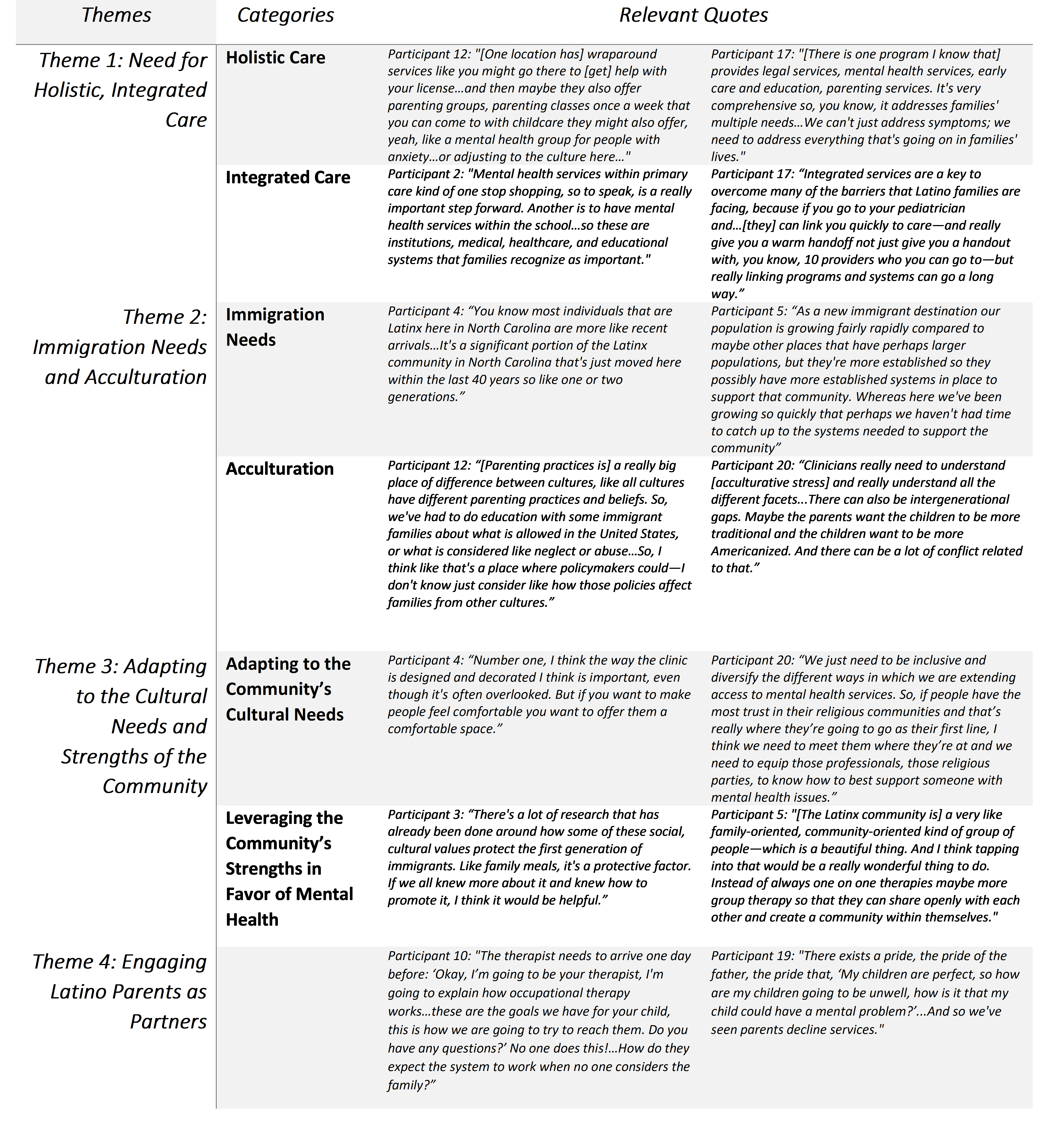Mental Health
Mental Health 2
400 - Strategies to Promote Equitable Mental Health Care for Latino Children
Publication Number: 400.231

Francisco A. Banda (he/him/his)
Undergraduate Research Assistant
Duke University
McAllen, Texas, United States
Presenting Author(s)
Background:
Background: The ongoing pediatric mental health crisis has disproportionately impacted Latino youth in the U.S. with the group experiencing elevated risks of depressive symptoms, substance abuse, and anxiety. Given unique barriers related to language, stigma, and acculturation it is imperative to tailor strategies to promote equitable mental health care for this population.
Objective:
Objective: To understand best practices, challenges, and community-identified priorities in providing accessible and equitable mental health care for Latino youth.
Design/Methods:
Methods: A bicultural, bilingual interviewer conducted 20 interviews with key informants with expertise in Latino mental health. Topics included obstacles to mental health care access and treatment for Latino youth, strategies to address barriers, and the role of cultural humility. Rapid qualitative analysis was used to identify themes.
Results:
Results: Participants included mental health practitioners (n= 12), policy experts (n= 5), community service workers (n= 2) and a pediatrician (n= 1) based in NC (n= 15) and in other U.S. states (n= 5). Four themes were apparent (Table 1): 1) The provision of holistic services that span medical and social sectors can address some of the Latino community’s most frequently reported social needs (e.g., transportation, food and housing vulnerabilities) 2) Practitioners should consider immigration-related concerns, such as family separation and migrant trauma, and be prepared to address acculturation-related stressors. 3) Training in cultural humility can allow providers to engage with both the strengths and needs of Latino families. For example, familismo (unique emphasis on the family unit) and spiritualismo (religious/spiritual beliefs around health and illness) are critical cultural considerations. 4) Engaging Latino parents around cultural perspectives on parenting or mental health can improve mental health care for Latino children. Providing culturally responsive Spanish-language resources and assisting with navigation of the health care system can build trust and help parents understand the complexities of mental health treatment.
Conclusion(s):
Conclusion: Several practical strategies are identified to improve provision of mental health services for Latino children. Integrated, cross sector services can improve access to care for the Latino community, while enhanced training for pediatricians and mental health practitioners around immigration needs, acculturation stress, and Latino culture are crucial to improving the quality of treatment provided and to promote genuine partnership with Latino parents
